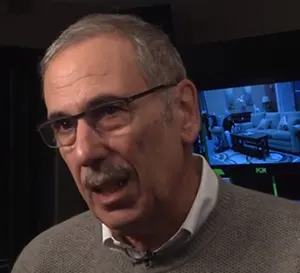Published on: May 22, 2025 at 6:08 am
This year, the Trump administration has fired many government researchers, canceled scientific and medical research grants, and targeted leading universities, including Harvard, with debilitating funding freezes. Fear of reprisal has caused many scientists, doctors, professors, and university administrators to opt for silence instead of speaking up to defend the research that is getting the ox.
Academy of Management (AOM) Scholar Peter Bamberger of Tel Aviv University says much of the research produced by him and his colleagues, including many AOM members, has a day-to-day impact on industry practitioners, including organizational leaders and managers. Cuts in federal funding for research will have a negative impact on industry, as well as researchers, colleges and universities, and other research institutions.
“What we publish in our primary journals have to be both theoretically important and have practical relevance,” Bamberger said. “It’s got to be interesting from a theoretical perspective and intellectual perspective, and it’s got to have some sort of surprising element—going against conventional wisdom—but it also has to translate that surprising finding into something that managers can do something about.
“And there are thousands of organizational consultants who read the findings published in our journals and then translate that into actual practice in organizations,” he said.
Bamberger points out that a great deal of research is specifically aimed at examining current practices by managers and their efficacy. Recently, he published a study of the managerial approach called design thinking, which focuses on understanding clients’ needs and designing innovative solutions.
“Design thinking has been around for about 10 years,” Bamberger said. “It’s an approach to create more innovative ways of boosting learning and finding innovative solutions to common problems or sometimes even really wicked problems.
“It became a fad and a lot of organizations adopted it, but no one ever bothered to actually assess whether or not it has an impact and whether this impact is any greater than other types of learning-oriented interventions, like team building,” he said.
Bamberger and research colleagues designed a field experiment to test the impact of design thinking as a team learning intervention. They compared over time what happens in terms of the efficiency and productivity of teams using different interventions.
“Is design thinking more efficacious than an alternative?” Bamberger said. “And we found out that in fact it is, and we actually demonstrate the mechanism by which it operates and why it’s more effective than other mechanisms.
“So these types of practical implications are useful to managers and to the extent that we don’t have funding necessary to do this type of research, everybody suffers,” he said.












